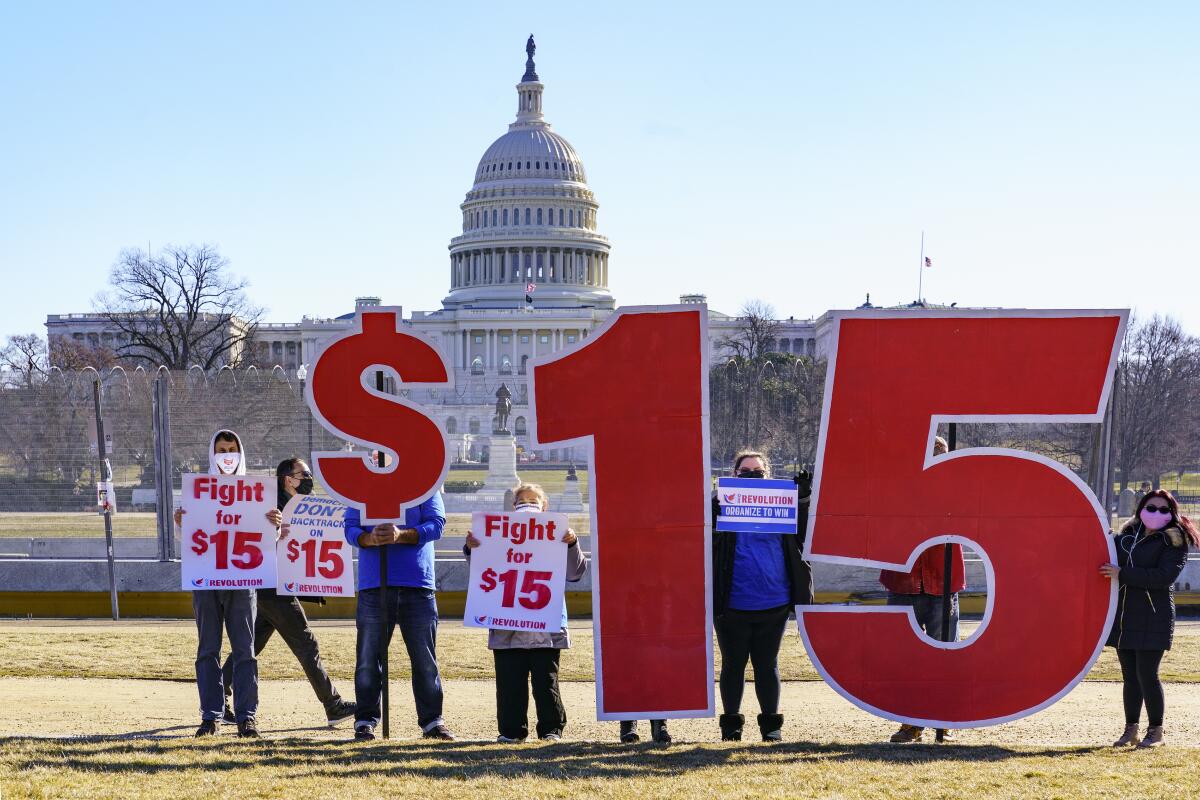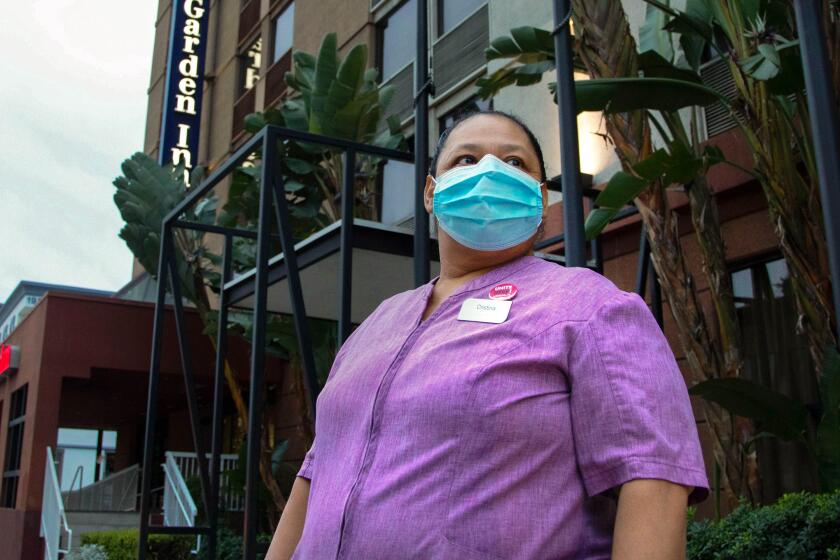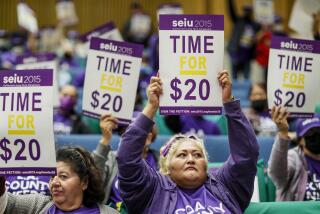Study: 1 in 3 workers in U.S. earn less than $15 an hour

With an effort by Democrats to boost the national minimum wage stalled, a new report finds that on average, 1 in 3 U.S. workers are still making less than $15 an hour, and the share of women and people of color earning that amount is even greater.
Nearly 52 million U.S. workers — or 32% of the country’s workforce — earn less than $15 an hour, according to a report published Tuesday by Oxfam America. The data help quantify how many Americans could be affected by the Raise the Wage Act, which would set a $15 federal hourly minimum and has been pending in Congress since January 2021.
Women and people of color are more likely than their white and male counterparts to be lower earners, the study finds. Although 25% of men earn less than $15 an hour, the figure is 40% for women. Half of working women of color reported the same.
“There’s a history of why people were locked out,” Kaitlyn Henderson, one of the report’s authors, told Bloomberg on Tuesday. “Overwhelmingly, it was discriminating against women and people of color, and we see the echoes of that even today.”
The national minimum wage was raised to $7.25 an hour in 2009, and by law an employer must pay the higher of the minimum salaries mandated by state or federal government. As a result, many minimum wage workers end up earning more than $7.25. But advocacy groups argue that even the proposed $15 an hour is too low. For example, an August 2021 report by USAFacts found that a worker earning that much would have to put in more than 73 workweeks’ worth of shifts to cover family expenses.
The Oxfam report also highlights geographical differences in wages. In Mississippi, 45% of the workforce earn less than $15 an hour, and in Puerto Rico it’s 76%. On the other end of the spectrum, just 18% of workers in California and 14% of workers in Washington state earn less than $15 an hour.
We talk to a hotel worker who describes how cleaning rooms is harder than ever thanks to pandemic protocols.
The practice of a subminimum wage for tipped workers, which allows businesses to pay their workers $2.13 an hour on the good-faith belief that tips will make up the difference, is flagged as well. “The enforcement of that is very, very sketchy,” Henderson noted. Wage theft affects 17% of low-wage workers, according to an Economic Policy Institute report.
“The subminimum wage, again, is sort of a legacy of the racist and sexist creation of minimum wage policies in this country,” Henderson said, noting that the people who were first excluded from wage minimums were domestic workers, farmworkers and restaurant workers — and a disproportionate number of those workers were Black or female.
The Raise the Wage Act would eliminate the separate minimum wage requirements for tipped, newly hired and disabled employees. After a period, those employees would be paid the same minimum wage as regular employees.
More to Read
Inside the business of entertainment
The Wide Shot brings you news, analysis and insights on everything from streaming wars to production — and what it all means for the future.
You may occasionally receive promotional content from the Los Angeles Times.











